Classical CDs Weekly: Bach, Handel, Pärt | reviews, news & interviews
Classical CDs Weekly: Bach, Handel, Pärt
Classical CDs Weekly: Bach, Handel, Pärt
An epic Passion, an iconic oratorio and choral music from a great Estonian
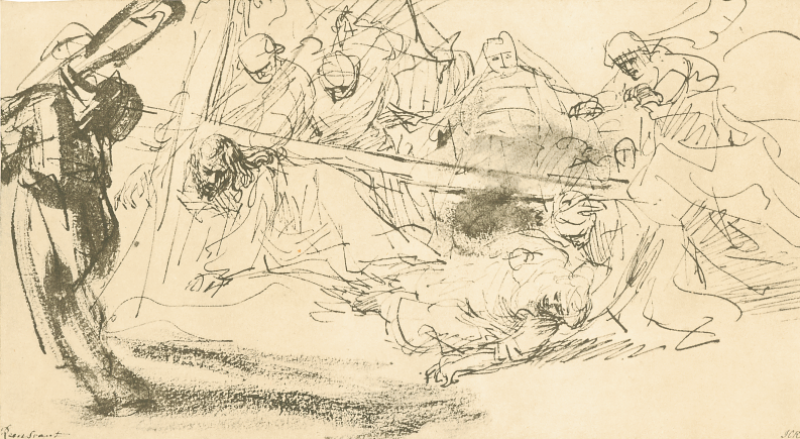
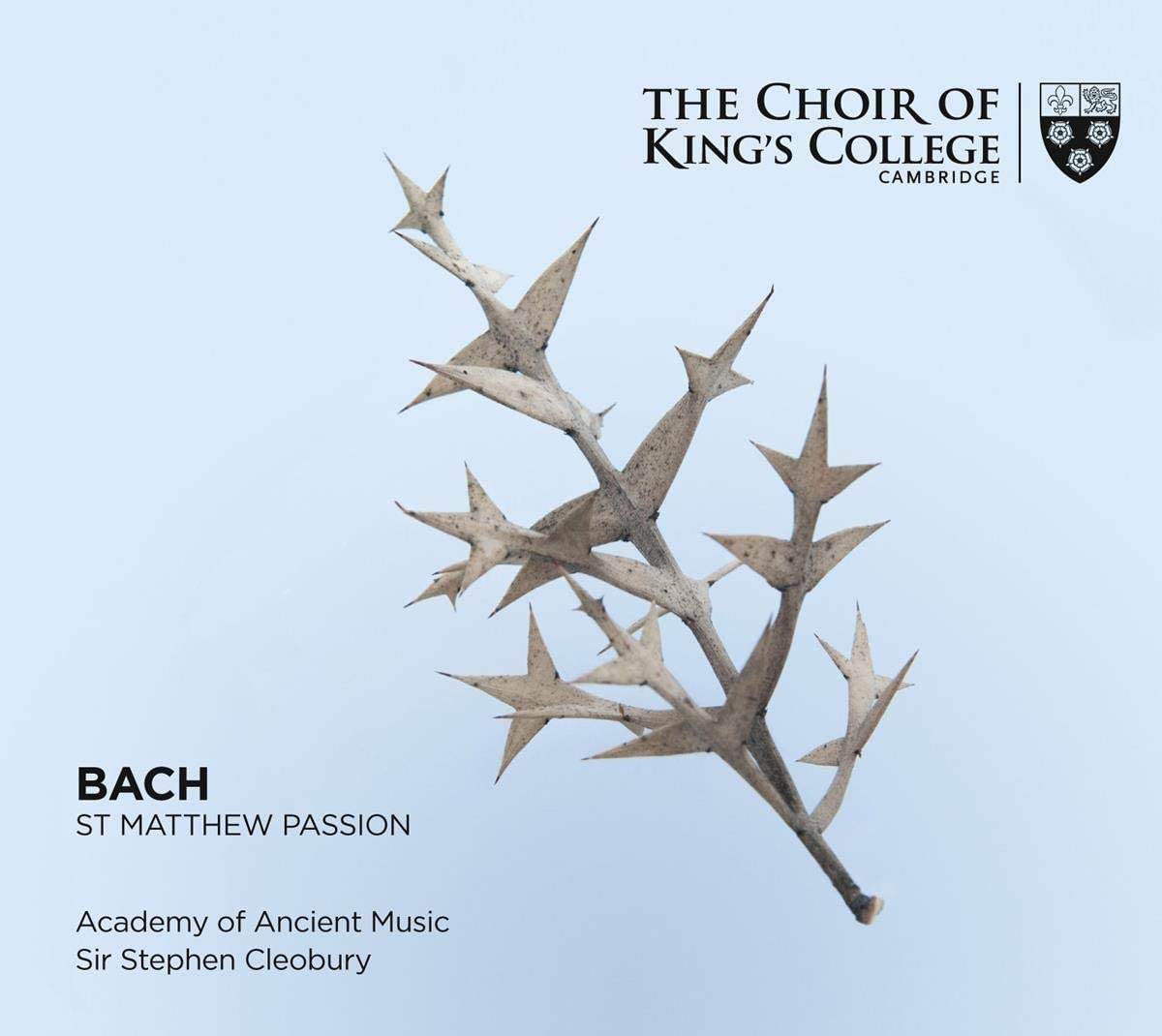 Bach: St Matthew Passion The Choir of King’s College Cambridge, Academy of Ancient Music/Sir Stephen Cleobury (King’s College Cambridge)
Bach: St Matthew Passion The Choir of King’s College Cambridge, Academy of Ancient Music/Sir Stephen Cleobury (King’s College Cambridge)
Bach Collegium Japan/Masaaki Suzuki (BIS)
Both Masaaki Suzuki and the late lamented Sir Stephen Cleobury have recorded Bach's St Matthew Passion before. I struggled to choose between these two new versions, so thought it best to include both. Overall timings for both sets are, amazingly, just a few seconds apart, though BIS manage to squeeze Suzuki’s version onto just two discs. His account was taped under studio conditions in Japan last April, and features a small mixed choir and some luxury casting. Cleobury's, also from April 2019, is a live recording made during performances given in the Chapel of King’s College and uses a larger, male voiced choir. It's a matter of personal taste; at various points over the last few weeks I've swooned over Bach Collegium Japan’s warmth, flexibility and polish, then been floored by the glorious sharpness and bite of Cleobury’s boy trebles. In both performances there's a wonderfully clear separation between the two choirs, and there's handsome orchestral support for both conductors. Cleobury has the Academy of Ancient Music, its piquant solo winds especially arresting, and Suzuki's similarly sized ensemble includes his son Masato on organ.
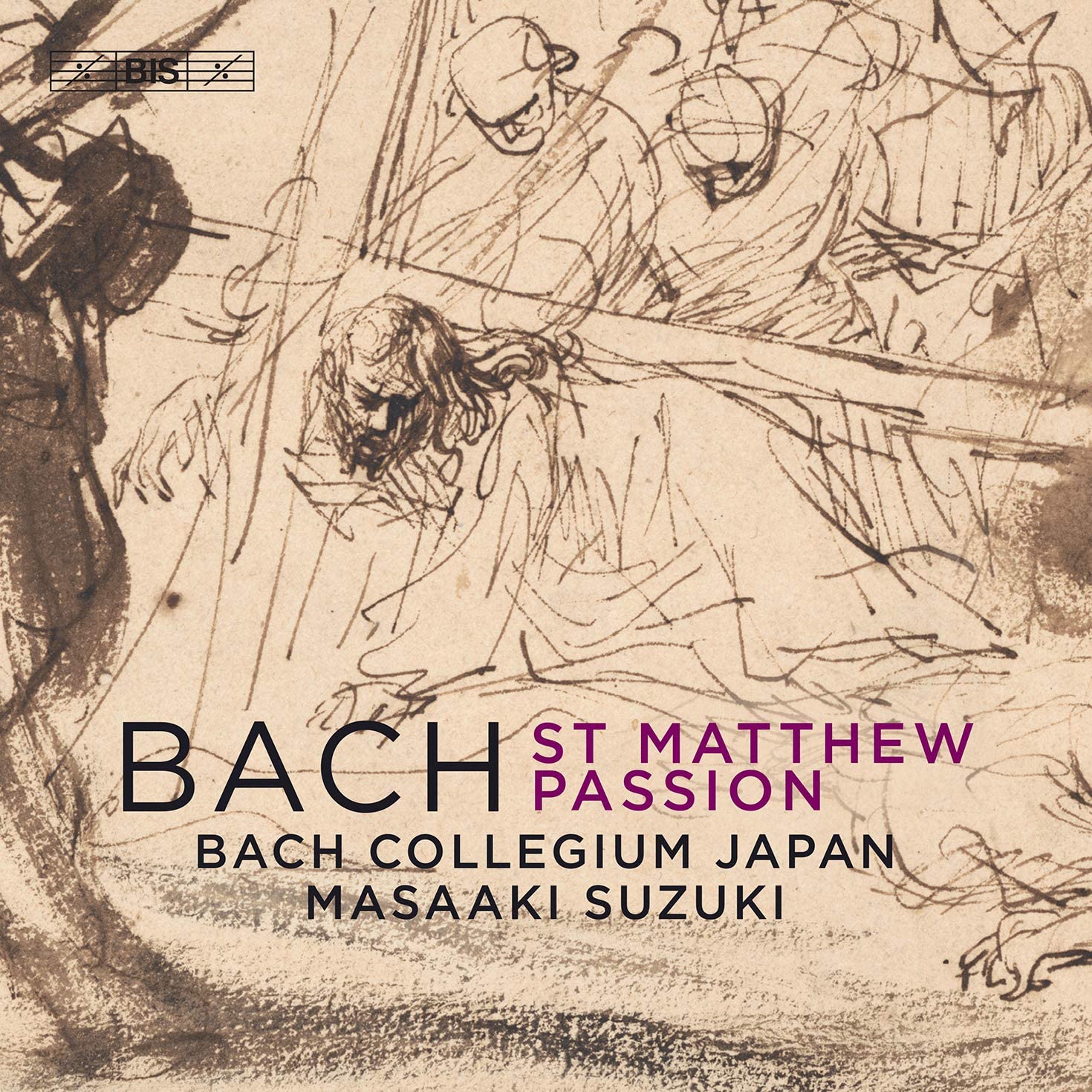 Suzuki's Evangelist is the young German tenor Benjamin Bruns, expressive and impassioned, while Cleobury has James Gilchrist, slightly less tonally alluring but really inhabiting the part. Carolyn Sampson is excellent for Suzuki, her “Aus Liebe” in Part 2 one of the set’s highlights, while Cleobury draws brilliantly characterised singing from Sophie Bevan. His countertenor David Allsopp is glorious in “Erbarme Dich”, but it's impossible to say whether he's preferable to Suzuki's Clint van der Linde. If pushed to choose one box set, right now, I'd probably go for Cleobury. There's a tension, a theatricality to his performance which thrills, and the bigger choruses have a weight and oomph that's emotionally overwhelming. If you'd have asked me last night, it might have been Suzuki, whose intensity and humanity offer rich rewards. Both recordings are handsomely packaged, richly recorded and well-documented. You're probably not going out much at the moment, so support the UK’s struggling classical record industry and buy the pair.
Suzuki's Evangelist is the young German tenor Benjamin Bruns, expressive and impassioned, while Cleobury has James Gilchrist, slightly less tonally alluring but really inhabiting the part. Carolyn Sampson is excellent for Suzuki, her “Aus Liebe” in Part 2 one of the set’s highlights, while Cleobury draws brilliantly characterised singing from Sophie Bevan. His countertenor David Allsopp is glorious in “Erbarme Dich”, but it's impossible to say whether he's preferable to Suzuki's Clint van der Linde. If pushed to choose one box set, right now, I'd probably go for Cleobury. There's a tension, a theatricality to his performance which thrills, and the bigger choruses have a weight and oomph that's emotionally overwhelming. If you'd have asked me last night, it might have been Suzuki, whose intensity and humanity offer rich rewards. Both recordings are handsomely packaged, richly recorded and well-documented. You're probably not going out much at the moment, so support the UK’s struggling classical record industry and buy the pair.
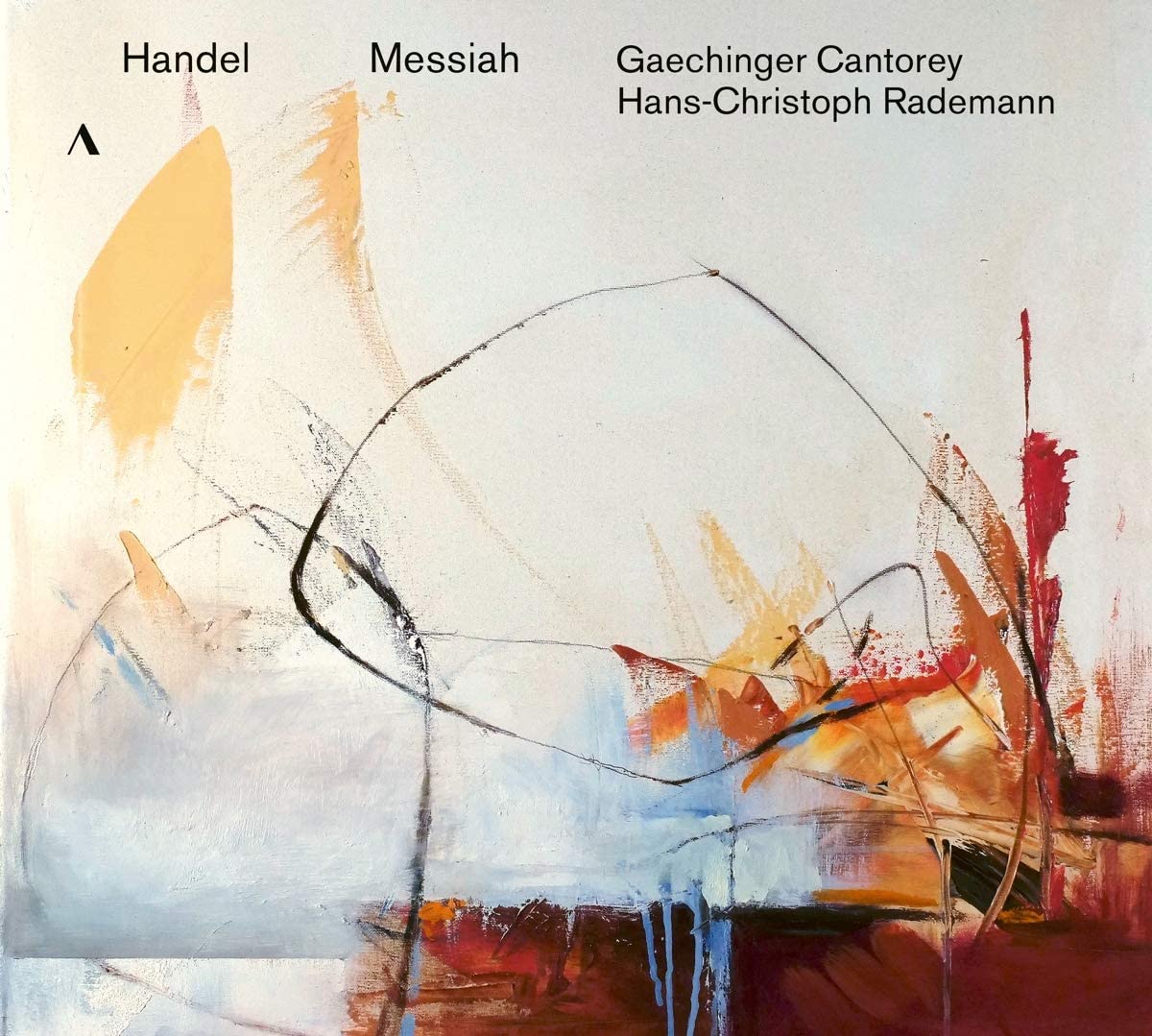 Handel: Messiah Gaechinger Cantorey/Hans-Christoph Rademann (Accentus)
Handel: Messiah Gaechinger Cantorey/Hans-Christoph Rademann (Accentus)
A colleague who moonlights as a singer gave me some valuable insights as to what makes a good performance of Handel’s Messiah, and also prompted a mercifully quick listen to Thomas Beecham’s famous recording, the one using Eugene Goossens’ crazily inauthentic orchestration. A few minutes of that make most other performances sound excellent, and it was a relief to switch on this new recording, the neat, alert playing of the Gaechinger Cantorey’s orchestra one of its best features. Conductor Hans-Christoph Rademann keeps things bouncing along and his opting for Handel's first Dublin version makes it fit comfortably on a pair of CDs.
Accentus's recorded balance favours the higher voices, often disconcertingly so, and the choruses have plenty of lightness and energy. “His yoke is easy, and His burden is light” is a typical example, bright, cheery and positive, though oddly lacking in bass. “Hallelujah” begins in in comically subdued fashion, but quickly grows into something spectacular. Bass Tobias Berndt and alto Benno Schachtner stand out among the vocal soloists. This is a solid, enjoyable Messiah – it won't supplant Paul McCreesh’s DG version, but there's plenty to enjoy. Accentus's production values are impressive, with good documentation, full texts and typically cool sleeve art.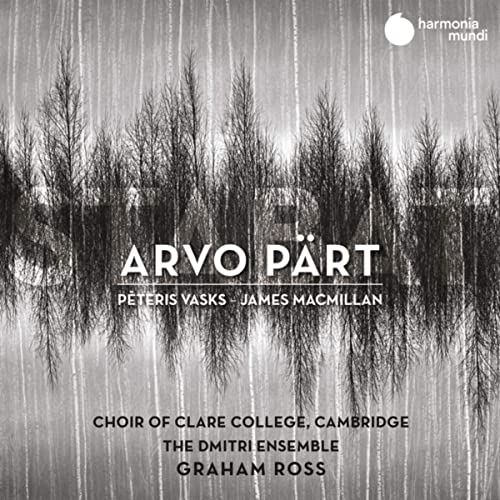 Stabat – Sacred music by Arvo Pärt, James MacMillan and Pēteris Vasks Choir of Clare College, Cambridge, The Dmitri Ensemble/Graham Ross (Harmonia Mundi)
Stabat – Sacred music by Arvo Pärt, James MacMillan and Pēteris Vasks Choir of Clare College, Cambridge, The Dmitri Ensemble/Graham Ross (Harmonia Mundi)
In essence an Arvo Pärt compilation with two well-chosen bonus tracks, this is an outstanding collection. I'd point newcomers towards a brilliant ECM disc collecting Pärt’s four symphonies, works which span his career and show just how dramatic his musical change of direction was. Pärt entered a spell of voluntary silence in the late 1960s, studying medieval music and emerging as a strikingly individual, initially unfashionable voice. 1985’s Stabat Mater is the biggest piece here, heard in a recent version for large mixed choir and string orchestra. How brilliantly and subtly Pärt builds the tension, the sopranos’ blistering “et cruore filii” in the penultimate stanza both thrilling and agonising, the strings’ radiant closing hymn a perfect coda. This performance, from Graham Ross’s superbly drilled Choir of Clare College, Cambridge, is exceptional, and neatly accompanied by Ross’s own Dmitri Ensemble. Though I wish that the individual stanzas had been separately tracked. The four other Pärt works are scored for unaccompanied voices. Da Pacem, Domine is a solemn prayer for peace, and his 1989 Magnificat is more subdued rumination than affirmative shout. Especially striking is The Woman with the Alabaster Box, a sombre English-language setting of verses from the Gospel according to St Matthew. The choral sound throughout is superb, and the confidence with which these young singers attack the opening bars of the Nunc dimittis is jaw-dropping.
Pēteris Vasks’ wordless Plainscapes offers us a journey across the composer's native Latvia, the big skies and flat landscapes portrayed in music of widescreen magnificence. Vasks also knows how to make his case slowly, the ecstatic outbursts near the work’s close exhilarating and overwhelming. Violinist Jamie Campbell and cellist Oliver Coates offer unflagging, passionate support. James MacMillan’s Misere makes for an interesting contrast. Initially dark and brooding, MacMillan’s faith prompts him to let rip near the end. Marvellous – this is serious stuff, but thoroughly accessible with it.
Explore topics
Share this article
The future of Arts Journalism
You can stop theartsdesk.com closing!
We urgently need financing to survive. Our fundraising drive has thus far raised £49,000 but we need to reach £100,000 or we will be forced to close. Please contribute here: https://gofund.me/c3f6033d
And if you can forward this information to anyone who might assist, we’d be grateful.

Subscribe to theartsdesk.com
Thank you for continuing to read our work on theartsdesk.com. For unlimited access to every article in its entirety, including our archive of more than 15,000 pieces, we're asking for £5 per month or £40 per year. We feel it's a very good deal, and hope you do too.
To take a subscription now simply click here.
And if you're looking for that extra gift for a friend or family member, why not treat them to a theartsdesk.com gift subscription?
more Classical music
 Hallé John Adams festival, Bridgewater Hall / RNCM, Manchester review - standing ovations for today's music
From 1980 to 2025 with the West Coast’s pied piper and his eager following
Hallé John Adams festival, Bridgewater Hall / RNCM, Manchester review - standing ovations for today's music
From 1980 to 2025 with the West Coast’s pied piper and his eager following
 Kaploukhii, Greenwich Chamber Orchestra, Cutts, St James's Piccadilly review - promising young pianist
A robust and assertive Beethoven concerto suggests a player to follow
Kaploukhii, Greenwich Chamber Orchestra, Cutts, St James's Piccadilly review - promising young pianist
A robust and assertive Beethoven concerto suggests a player to follow
 Robin Holloway: Music's Odyssey review - lessons in composition
Broad and idiosyncratic survey of classical music is insightful but slightly indigestible
Robin Holloway: Music's Odyssey review - lessons in composition
Broad and idiosyncratic survey of classical music is insightful but slightly indigestible
 Classical CDs: Wolf-pelts, clowns and social realism
British ballet scores, 19th century cello works and contemporary piano etudes
Classical CDs: Wolf-pelts, clowns and social realism
British ballet scores, 19th century cello works and contemporary piano etudes
 Bizet in 150th anniversary year: rich and rare French offerings from Palazzetto Bru Zane
Specialists in French romantic music unveil a treasure trove both live and on disc
Bizet in 150th anniversary year: rich and rare French offerings from Palazzetto Bru Zane
Specialists in French romantic music unveil a treasure trove both live and on disc
 Scottish Chamber Orchestra, Ibragimova, Queen’s Hall, Edinburgh review - rarities, novelties and drumrolls
A pity the SCO didn't pick a better showcase for a shining guest artist
Scottish Chamber Orchestra, Ibragimova, Queen’s Hall, Edinburgh review - rarities, novelties and drumrolls
A pity the SCO didn't pick a better showcase for a shining guest artist
 Kilsby, Parkes, Sinfonia of London, Wilson, Barbican review - string things zing and sing in expert hands
British masterpieces for strings plus other-worldly tenor and horn - and a muscular rarity
Kilsby, Parkes, Sinfonia of London, Wilson, Barbican review - string things zing and sing in expert hands
British masterpieces for strings plus other-worldly tenor and horn - and a muscular rarity
 From Historical to Hip-Hop, Classically Black Music Festival, Kings Place review - a cluster of impressive stars for the future
From quasi-Mozartian elegance to the gritty humour of a kitchen inspection
From Historical to Hip-Hop, Classically Black Music Festival, Kings Place review - a cluster of impressive stars for the future
From quasi-Mozartian elegance to the gritty humour of a kitchen inspection
 Shibe, LSO, Adès, Barbican review - gaudy and glorious new music alongside serene Sibelius
Adès’s passion makes persuasive case for the music he loves, both new and old
Shibe, LSO, Adès, Barbican review - gaudy and glorious new music alongside serene Sibelius
Adès’s passion makes persuasive case for the music he loves, both new and old
 Anja Mittermüller, Richard Fu, Wigmore Hall review - a glorious hall debut
The Austrian mezzo shines - at the age of 22
Anja Mittermüller, Richard Fu, Wigmore Hall review - a glorious hall debut
The Austrian mezzo shines - at the age of 22
 First Person: clarinettist Oliver Pashley on the new horizons of The Hermes Experiment's latest album
Compositions by members of this unusual quartet feature for the first time
First Person: clarinettist Oliver Pashley on the new horizons of The Hermes Experiment's latest album
Compositions by members of this unusual quartet feature for the first time

Add comment